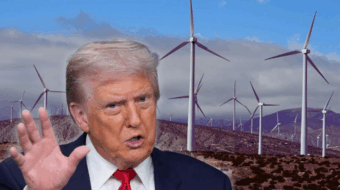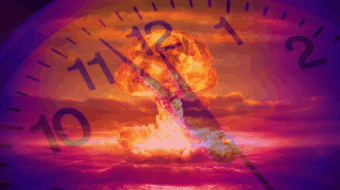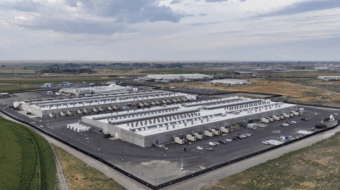Whether you call it “wild weather” or “extreme weather” or “weird weather,” this summer is providing many examples of exactly the kind of extreme weather events predicted by climate change scientists.
Some areas are experiencing drought (like the U.S. Southwest, the Russian breadbasket, and parts of Australia). Some are being deluged with so-called “500 year” rain leading to flooding (Iowa, Pakistan). Weather at the poles, where temperature increase is three or four times what is happening elsewhere on the globe, is leading to massive melting and breaking off of icebergs. That includes an iceberg the size of Massachusetts that broke off of Greenland the other day. Temperature in Moscow has broken the 100 degree mark for the first time in 130 years of recorded history.
These are not small, isolated events. They are part of the pattern of worldwide climate change resulting from the increasing temperature of global warming. Some of the events are warming events, others are serious disruption of historical weather patterns, others will lead to increases in sea levels. Of course, we can’t point to any one of these events and claim that it was “caused” by global warming, but the pattern makes clear that extreme weather and constant weather-related catastrophes are escalating rapidly.
The shifts in world weather are the result of the buildup of carbon dioxide and other greenhouse gases over the last several hundred years, from industrial pollution, from burning fossil fuels, and from deforestation. It will take a long time to turn this around, and the longer we wait, the harder and more expensive it will be, and the greater the damage inflicted on humans and our environment.
The minor steps being proposed in the watered-down energy legislation proposed by Democrats are worth taking, but they fall far short of addressing the problem we face.
At Karl Marx’s graveside, his friend and coworker Frederick Engels noted that Marx “discovered the law of development of human history, the simple fact, hitherto concealed by an overgrowth of ideology, that mankind must first of all eat, drink, have shelter and clothing, before it can pursue politics, science, art, religion, etc.” And in order to eat, drink, have shelter and clothing, we must have an environment that enables us to grow, harvest, and otherwise produce the raw materials required. Global climate change is putting those most basic, most elemental needs increasingly at risk.
All human history flows from the development of agriculture about 10,000 years ago, and that entire period has seen, on average, a moderate climate. We depend on that climate and on the agricultural bounty it enables us to produce. We are now approaching the limits beyond which the essentials of life will become more difficult to produce.
We are also approaching the limits beyond which the environment will shift in fundamental ways, making recovery much more difficult.
While the causes of the global climate change we have experienced thus far are a result of human activity, Mother Nature is starting to react in ways that will escalate global warming. For example, the millions of square miles of permafrost, which have been frozen for centuries or millennia, contain enough greenhouse gases to overwhelm whatever humans can do. As that permafrost melts, it is releasing those gases. If we don’t begin acting soon, the atmosphere will change beyond the point where human corrective action is possible.
Climate change interacts with other problems resulting from human activity. Many of the world’s great fisheries have been overfished, cutting our ability to feed ourselves using fish protein. The oceans have also provided a storehouse for carbon dioxide, but they are becoming increasingly acidified as a result, leading to larger areas of ocean which are dead zones. This will make it more difficult for those fisheries to recover.
How many more catastrophes will it take to overcome the inertia of our current economic and political systems, to overcome the vested interests which benefit from business as usual, to bring the pressure of billions of people to bear on this problem?










